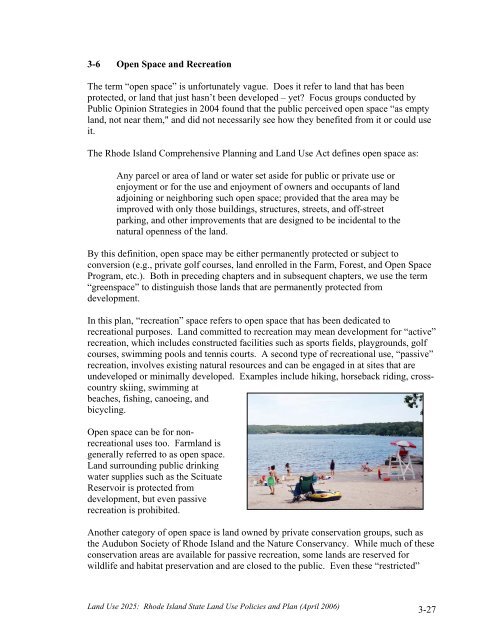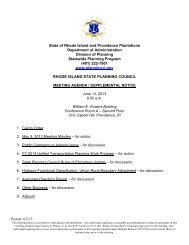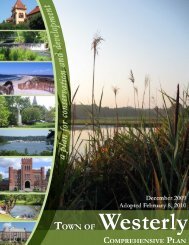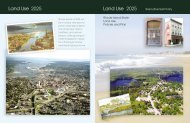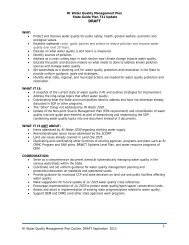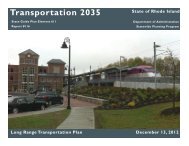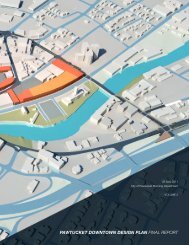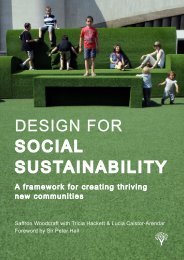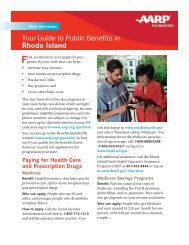Land Use 2025 - RhodeMap RI
Land Use 2025 - RhodeMap RI
Land Use 2025 - RhodeMap RI
- No tags were found...
You also want an ePaper? Increase the reach of your titles
YUMPU automatically turns print PDFs into web optimized ePapers that Google loves.
3-6 Open Space and RecreationThe term “open space” is unfortunately vague. Does it refer to land that has beenprotected, or land that just hasn’t been developed – yet? Focus groups conducted byPublic Opinion Strategies in 2004 found that the public perceived open space “as emptyland, not near them," and did not necessarily see how they benefited from it or could useit.The Rhode Island Comprehensive Planning and <strong>Land</strong> <strong>Use</strong> Act defines open space as:Any parcel or area of land or water set aside for public or private use orenjoyment or for the use and enjoyment of owners and occupants of landadjoining or neighboring such open space; provided that the area may beimproved with only those buildings, structures, streets, and off-streetparking, and other improvements that are designed to be incidental to thenatural openness of the land.By this definition, open space may be either permanently protected or subject toconversion (e.g., private golf courses, land enrolled in the Farm, Forest, and Open SpaceProgram, etc.). Both in preceding chapters and in subsequent chapters, we use the term“greenspace” to distinguish those lands that are permanently protected fromdevelopment.In this plan, “recreation” space refers to open space that has been dedicated torecreational purposes. <strong>Land</strong> committed to recreation may mean development for “active”recreation, which includes constructed facilities such as sports fields, playgrounds, golfcourses, swimming pools and tennis courts. A second type of recreational use, “passive”recreation, involves existing natural resources and can be engaged in at sites that areundeveloped or minimally developed. Examples include hiking, horseback riding, crosscountryskiing, swimming atbeaches, fishing, canoeing, andbicycling.Open space can be for nonrecreationaluses too. Farmland isgenerally referred to as open space.<strong>Land</strong> surrounding public drinkingwater supplies such as the ScituateReservoir is protected fromdevelopment, but even passiverecreation is prohibited.Another category of open space is land owned by private conservation groups, such asthe Audubon Society of Rhode Island and the Nature Conservancy. While much of theseconservation areas are available for passive recreation, some lands are reserved forwildlife and habitat preservation and are closed to the public. Even these “restricted”<strong>Land</strong> <strong>Use</strong> <strong>2025</strong>: Rhode Island State <strong>Land</strong> <strong>Use</strong> Policies and Plan (April 2006)3-27


